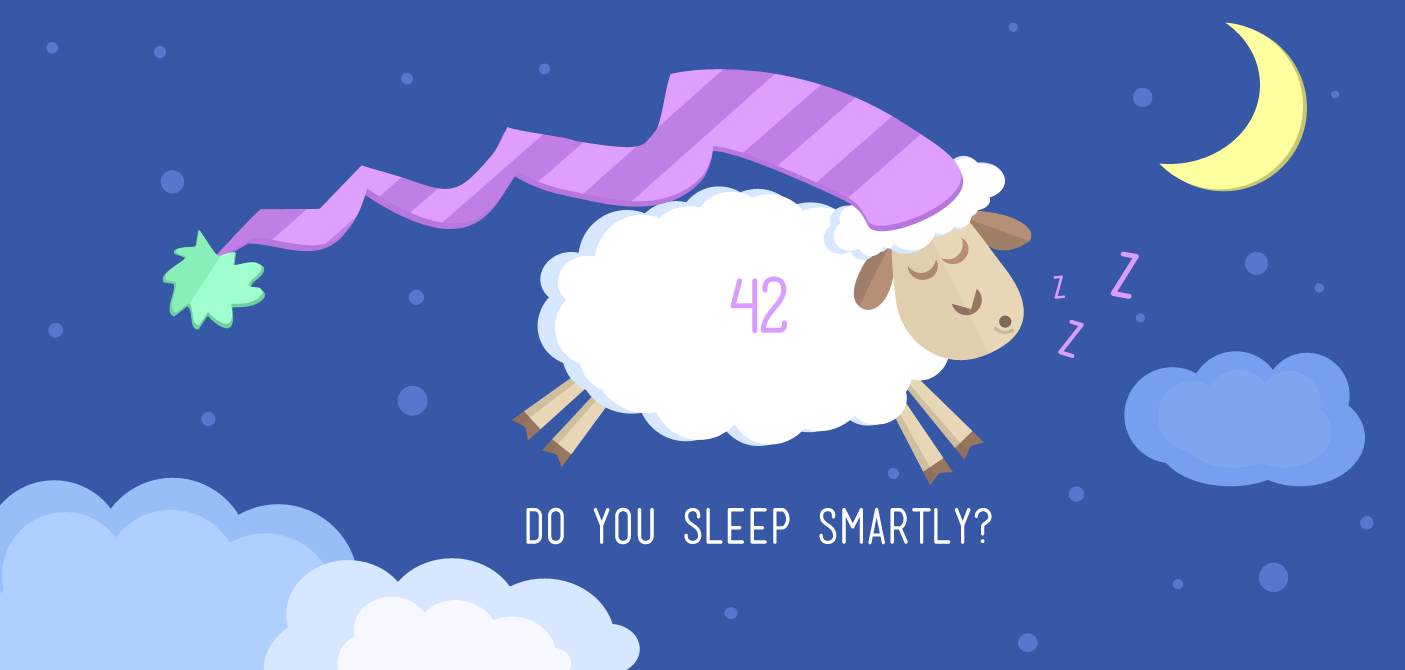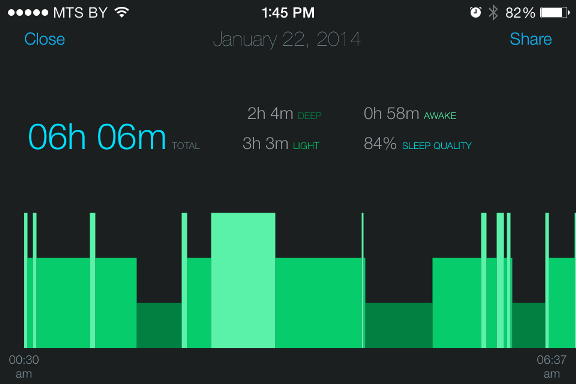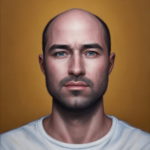What is peculiar about our team is that we all share a particular passion for productivity and doing more in less time. We have lots of projects going on, plenty of tasks to accomplish and tons of great ideas to fulfill. So many cool things to do and only 24 hours available. What a shame!
That’s why it only seems natural to trick the course of time and make the most of the day. It looks like an obvious way of doing it is through sleeping less and staying awake more. In fact, lots of successful people do that – you can get inspired by 23 Successful People Who Wake Up Really Early.
However, easier said than done. If you’ve ever tried to jump into an early-morning routine without actually being an early riser, you may have noticed certain “side effects” 🙂
“Morning is wonderful. Its only drawback is that it comes at such an inconvenient time of day.” ― Glen Cook
The first hour or two or…. (depending on how deeply you’re incompatible with getting up at sunrise) you feel like a character from The Walking Dead. After you completely wake up, you’re rewarded with a couple of hours of extra productivity boost making you think “Yay! It’s actually worth it!”. And then your body is like “Hold on, cowboy!” and you suddenly feel dog-tired and literally fall asleep every other second.
Since the only thing you care about is crashing into your bed, you’re not capable of effective communication, decision-making, or any decent stroke of work.
We’ve personally been through that and decided we need professional assistance, and we don’t mean a sleep specialist. In fact, we’ve agreed it is time to catch up with the trend of the last few years and try smart alarm apps lots of people are so obsessed with.
Developers claim that these alarms will work magic and let you sleep less and feel like a million dollars during the day. We’ve had no choice but to test one of these tools on ourselves 🙂
The anatomy of sleep
Before I share the results of our experiment, I suggest you take a quick peek at the sleeping process.
Sleep can be divided into two main types: quiet sleep (or Non-Rapid Eye Movement (NREM) Sleep) and active sleep (a.k.a. Rapid Eye Movement (REM) Sleep).
At an active sleep stage, a person’s brain isn’t sleeping but processing information making you see dreams or tossing and turning. As your brain activity level is high, waking up during this phase will be as smooth as possible.
We go through several sleep cycles during the night consisting of both quiet and active sleep. The first cycle lasts 90-100 min with quiet sleep prevailing over an active one, or the latter even missing at all. As you proceed with the next cycle, the length of quiet sleep starts decreasing while the active type duration rises. With the third cycle, the period of active sleep gets considerably longer and becomes predominant by the end of sleep.
These peculiarities of sleep stages and cycles are exactly what smart alarm clocks are based on.
How does a smart alarm clock work?
An app uses an accelerometer to monitor your movements during sleep, as simple as that. It means that you’d better keep your phone next to you on the bed and not leave it beside your wife/husband/dog. By analyzing the intensity and frequency of your movements, a smart alarm clock identifies what phase you’re in right now and a perfect time to wake you up.
When setting an alarm, you specify a deadline for waking up, let’s say 7 a.m. In this case, the app will come up with the best moment to do that (based on your sleep stage) within the time span from 6.30 a.m. to 7.30 a.m. The interval can be changed in the Settings.
The results
We’ve been using smart alarms for over a month already. Each of us has got a different tool fitting particular preferences and of course, OS (our team is divided into iOS, Android, and Windows advocates 🙂 ).
What I like about some of the alarm clock apps is their ability to record all the sounds made during sleep. You can listen to your mumbling which is fun, trust me, or find out what external noises wake you up at night.
For most of the team, waking up “in a smart way” has been working really well so far. You may feel a bit sleepy in the morning but come on, who doesn’t? The main benefit is not being exhausted and drained during the day which used to happen regularly before using the app. It comes in especially handy when you only get 4-5 hours of sleep and need to rise and shine.
Moreover, we love getting a chance to analyze a sleeping routine via informative charts. They are particularly useful for those trying to get more organized about their daily regimen.
As for the drawbacks, we’ve managed to figure out only one so far: if you’re too active in your sleep, the chances are high that you’ll eventually push the phone out of bed. So if you’re known for acting like a fruit ninja, try to secure your device 🙂
On the whole, I should say it feels really great when you’ve managed to run your errands, do a lot of stuff and see that it’s still lunchtime.
“One key to success is to have lunch at the time of day most people have breakfast.”- Robert Brault.
Have you ever tried to use smart alarms instead of good ol’ ones? I’d love to hear about your experience and your sleep & wake-up routine!
Everhour is the top choice for small businesses and small to mid-size teams of 5 to 50 members, including professionals like software developers, marketers, designers, consultants, lawyers, you name it!
Seamlessly integrating with popular project management tools like Asana, Trello, and Jira, its user-friendly interface and customizable reports make it the ultimate time tracking solution for small and mid-size teams.
With dedicated support ensuring you receive timely assistance, our team is here to help you promptly and with a smile!


